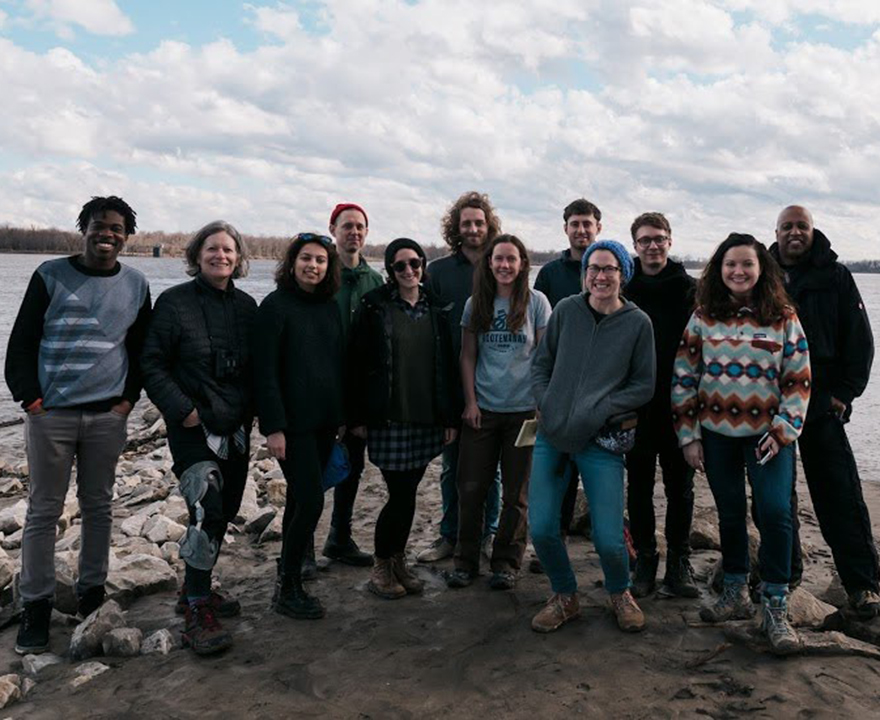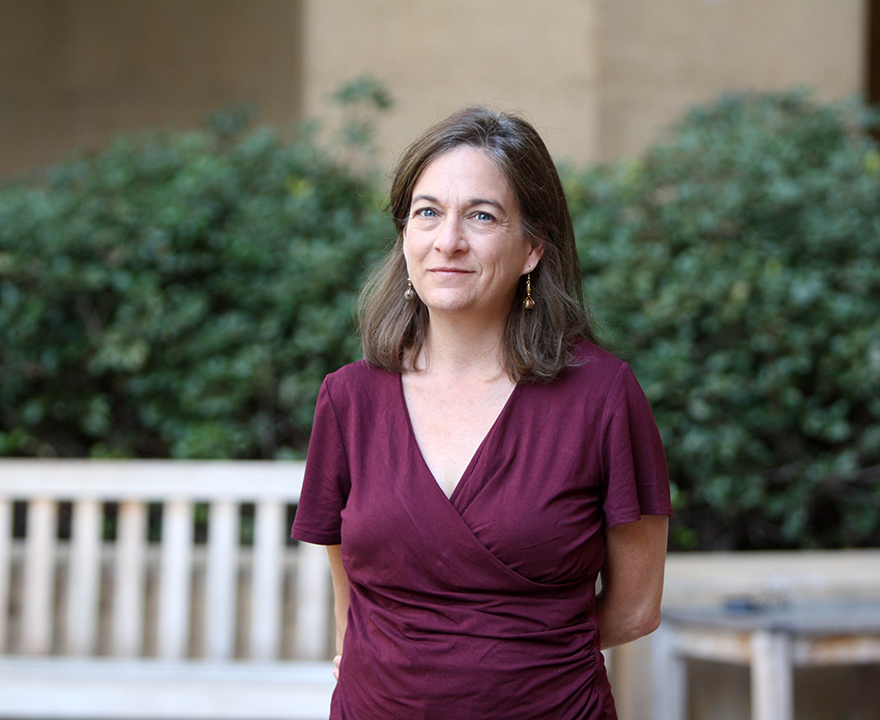A critical link for communities in crisis

A critical link for communities in crisis
- April 14, 2020
- Anthropology professor Kim Fortun and her students combine research, education, and on-the-ground action to help communities impacted by environmental disaster
-----
 Where communities struggle with complex environmental problems, you’ll find Kim Fortun.
The UCI anthropology professor specializes in studies of both explosive and slow-moving
disasters—from the Fukushima nuclear disaster to routine air pollution and its health
effects. A key goal of her work is to help communities and governments work together
to coordinate risk reduction and recovery.
Where communities struggle with complex environmental problems, you’ll find Kim Fortun.
The UCI anthropology professor specializes in studies of both explosive and slow-moving
disasters—from the Fukushima nuclear disaster to routine air pollution and its health
effects. A key goal of her work is to help communities and governments work together
to coordinate risk reduction and recovery.
“Social science provides vital perspectives on disaster, combining fine-grained analysis on the ground with a birds-eye view. This combination is needed to better coordinate efforts to prevent and respond to disaster,” says Fortun.
One current project, focused on "Quotidian Anthropocenes," examines the impacts of planetary-scale environmental change at the local level. Over the last year, Fortun, historian Scott Knowles, Drexel University, and a group of graduate students have focused on sites along the Mississippi River, contributing to a German-led research project, Mississippi: An Anthropocene River. With funding from the Haus der Kulturen der Welt and the Max Planck Institute for the History of Science in Berlin, the group has worked with community organizations to understand local environmental history and problems, and how these are exacerbated by climate change, petrochemical industry expansion, and other global dynamics.
“We don’t tell the communities we work with what to do; instead, we work alongside them to figure out what they are dealing with and what kind of knowledge infrastructures they will need to address volatile environmental conditions over the long term,” Fortun says. A key part of this work is developing new kinds of collaborations between academic researchers and communities impacted by environmental problems. The field campuses Fortun’s group has run—linking academic researchers to local communities—are part of this. Last March, Fortun and her group ran a Quotidian Anthropocene field campus in St. Louis, Missouri, where there is still radiation contamination from atomic bomb production in the 1940s and 1950s. They visited environmental remediation sites and spoke to people involved in the clean-up. They also toured the Weldon Spring nuclear waste disposal site and interpretive center (run by the Department of Energy), asking questions about possibilities for environmental stewardship when contamination will persist for thousands of years.
“In St. Louis, we met artists that turn polluted patches of land into small 'lead gardens,'” says Tim Schütz, anthropology graduate student. “Their projects are remarkable, but also sobering and often precariously documented. Academic researchers should be able to help them build the data infrastructure they need for sustainable community archiving of things they should have access to in the future—old EPA reports and soil sample data, for example, and the artwork they are producing today."
In September 2019, the New Orleans field campus focused on connections between the old plantation economy and the region’s petrochemical industry. A key debate in the region involves the siting of new chemical plants in communities that already have an exceptionally high pollution burden. Schütz captured this debate on film and brought it back to UCI to share with undergraduate students in the General Education course, “Environmental Injustice” (Anthro 25A). He worked with Fortun and other UCI graduate students Kaitlyn Rabach, Neak Loucks, and Katie Cox to develop the undergraduate course that is dynamically connected to their own research—encouraging undergraduates to become researchers themselves. Enrolled students get to publish their research as a community resource on the Disaster-STS research platform, which connects disaster researchers around the world.
"The QA Project builds robust comparative perspective by bringing together participants who have various forms of expertise and knowledge. The collaborative analysis has helped us understand localized Anthropocenes at our field campus sites,” says Loucks. “It also has enriched my dissertation research on environmental stewardship and public lands conflict in southern Utah, tuning my attention to parallels and contrasts between spaces."
Schütz’s dissertation research examines community data infrastructures needed in different settings where people are responding to the Anthropocene. Loucks studies how communities use land use policies to respond to environmental problems. James Adams, another graduate student in the group, examines the Anthropocene in Austin, Texas, focusing on the city’s initiative to move its electrical grid from fossil fuels to renewable energy. He’ll lead a QA Field Campus in Austin next year, highlighting ways greening initiatives like energy transition are often entangled with gentrification, which push out communities of color.
“Developing Anthropocene research strategies that attend to the specificities of a place without losing sight of its entanglement in both global networks and longue-duree processes is really important,” says Adams. “ These strategies have been fundamental in my own dissertation research focused on energy transition in Austin, Texas."
Fortun’s examination of the Anthropocene in the United States is part of a broader research program to understand how people in different organizations, political formations, and geographic regions respond to environmental risks and disaster vulnerability. She has done fieldwork throughout the United States, in many cities in India, Japan and China, developing deep global collaborations. Since coming to UCI in 2017, Fortun has developed research in Southern California, bringing the region into her ongoing study of air pollution governance in cities around the world.
“Complex problems call for complex collaborations and coordination,” Fortun says. “The environmental health threats that I study certainly call for this. My research not only aims to characterize these threats, but also to respond to them in practice by building new international research networks, collaborative research capacity, and open knowledge infrastructures. That’s our goal with the Anthropocene project.”
-----
Would you like to get more involved with the social sciences? Email us at communications@socsci.uci.edu to connect.
Share on:
Related News Items
- Careet RightI Dig UCI
- Careet RightWhy are women more concerned about climate change than men?
- Careet RightResearchers arm Santa Ana residents with data to fight pollution
- Careet RightWhy should you keep a lucky frog in your home, according to feng shui
- Careet RightHerzfeld joins UCI anthropology as Distinguished Visitor in residence for winter quarter


